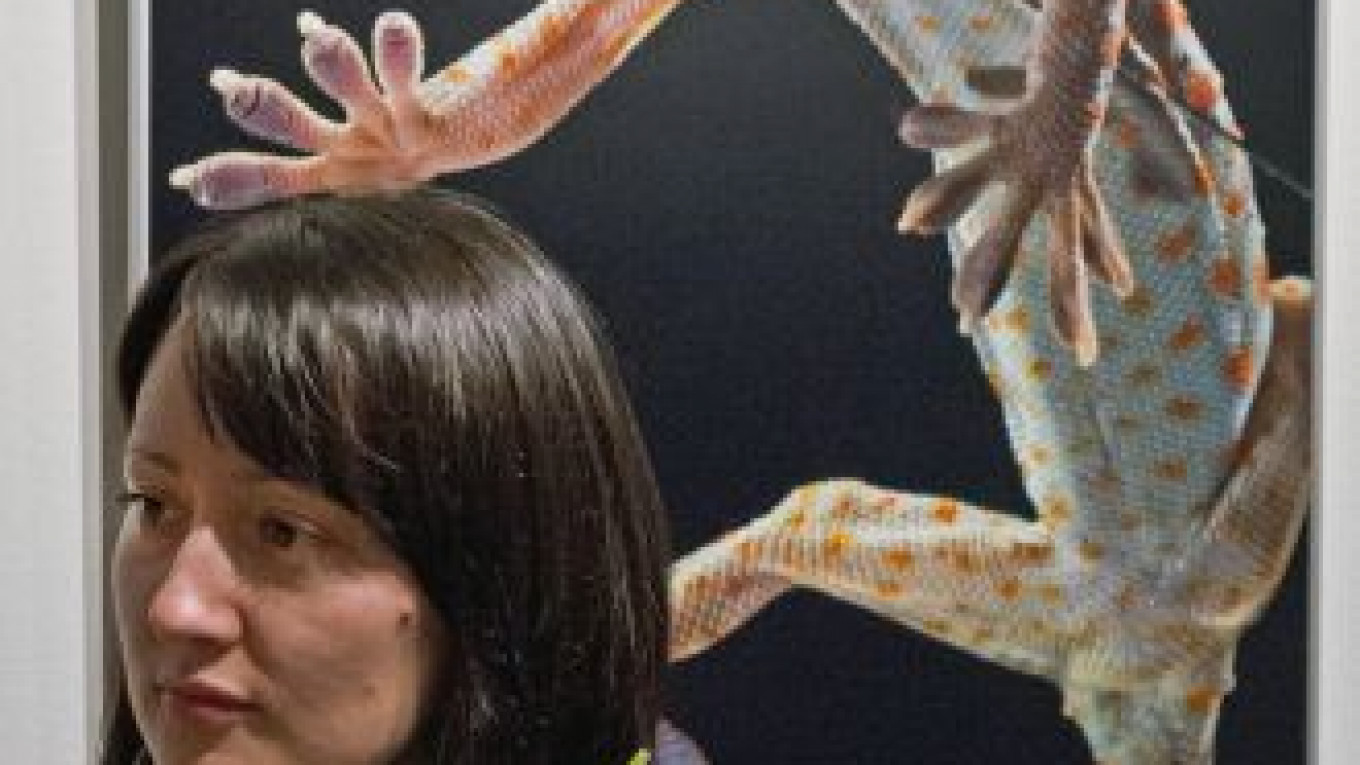Over the past 125 years, the simple yellow rectangle framing each new issue of National Geographic has become a symbol of discovery and unknown cultures. Every month for more than a century, a new magazine has appeared with the classic yellow frame spotlighting yet another image of faraway lands, wild nature or interesting people.
Now, to celebrate the 125th anniversary of the magazine's creation, National Geographic Russia has organized an exhibit of some of the publication's best photographs from the last century and a quarter. Many of these photographs, such as the famous photograph of an Afghan girl with bright turquoise eyes, will be instantly recognizable to the viewer. However, other photographs from the magazine's distant past recall times long since gone and can surprise visitors with unexpected vistas.
The National Geographic Society was first founded in 1888 by a group of 33 Americans with the goal of spreading knowledge of world geography. Over time, National Geographic has supported more than 9000 projects and has released journals, books, television series, films, maps and DVDs in more than 35 languages.
National Geographic has been a major supporter of some of the great explorers of the 20th century. The society sponsored the expeditions of polar explorer Robert Peary, submersible pioneer Jacques Cousteau and maritime archaeologist Robert Ballard.
Cousteau and Peary are both featured in photos at the exhibit: Peary is pictured somewhere in the far north, wrapped in an immense furry overcoat with an enormous, walrus-like moustache, while Cousteau is seen catching fish in his underwater world.
The exhibit is divided into several rooms that contain photos organized roughly by theme. One room contains photos of wildlife, another of famous individuals, and others contain travel photography from around the world.
Surprisingly, Russia was largely absent from the photographs in the exhibit. Though organized by National Geographic Russia, the exhibit seemed to favor photos taken for the more famous American edition of the magazine. In the one picture from Russia, solemn crowds of uniformly dressed Soviet citizens traipse across Red Square in a Victory Day parade, the pale blue sky above them obscured by a cloud of red flags and banners.
While the picture from the Soviet Union was remarkable in contrast with modern Russia, other pictures surprise viewers by showing how little has changed: A picture of men sitting in a bazaar in Herat, Afghanistan presents a scene very similar to those seen in news photographs from the region.
While some photographs shocked viewers with exotic people and scenes, others charmed by capturing everyday life, like a picture of a young Guatemalan boy in a big hat chasing a turkey, or scene of children in 1930s Ohio examining a poster for the circus. Another crowd favorite was a colorful photo showing two obese, smiling French tourists being carried ashore from their yacht by small Tahitian natives.
National Geographic's retrospective captures the zeitgeist of myriad places and times from throughout its 125-year history, creating a colorful patchwork of the 20th century. Shocking, illuminating and amusing, it draws viewers in and cannot be viewed quickly.
"125 Years of National Geographic" will run until Oct. 20 at the Brothers Lumiere Center of Photography, 3 Bolotnaya Naberezhnaya, Bldg. 1.
Contact the author at g.golubock@imedia.ru
A Message from The Moscow Times:
Dear readers,
We are facing unprecedented challenges. Russia's Prosecutor General's Office has designated The Moscow Times as an "undesirable" organization, criminalizing our work and putting our staff at risk of prosecution. This follows our earlier unjust labeling as a "foreign agent."
These actions are direct attempts to silence independent journalism in Russia. The authorities claim our work "discredits the decisions of the Russian leadership." We see things differently: we strive to provide accurate, unbiased reporting on Russia.
We, the journalists of The Moscow Times, refuse to be silenced. But to continue our work, we need your help.
Your support, no matter how small, makes a world of difference. If you can, please support us monthly starting from just $2. It's quick to set up, and every contribution makes a significant impact.
By supporting The Moscow Times, you're defending open, independent journalism in the face of repression. Thank you for standing with us.
Remind me later.






